Opera Vlaanderen opens the new season with Milo Rau's production of Mozart's La Clemenza dit Tito. A performance in which Rau unleashes his "theater of reality" on Mozart's last opera, creating two performances in one. A performance of Mozart's opera on the one hand and that of the director's story on the other. A schizophrenic production that will undoubtedly split minds. Mozart composed La Clemenza di Tito just before his death, in a time frame of 3 months (there is even mention of 18 days, it was a rush job anyway) on the occasion of the coronation of Leopold II. The commission paid well, twice the amount one usually paid in Vienna for an opera, and that was not unwelcome for the composer in need of money. Because of that short time, no new libretto could be written so a libretto by Metastasio was adapted that was already half a century old at the time. Tito was an opera that served a political purpose and (therefore) was nailed in its time. Moreover, the form, the opera seria, was considered increasingly obsolete by the end of the 18th century. It may have been a more or less forgotten opera in Mozart's repertoire for a long time, but La Clemenza di Tito has since enjoyed popularity. For example, Tito's forgiveness inspired American theater producer Peter Sellars to create a production about coexisting in a modern society and, without attempts at updating, the opera appears to be able to stand on its own musical feet enough to justify concert performances. Milo Rau, theater maker and self-proclaimed revolutionary, ventures into his first opera with La Clemenza di Tito and begins its production with a kind of apology for it. An opera composed two years after the French Revolution in honor of a king. An opera that provides the nobility, the elite, with an areole of magnanimity. Rau has something to say about that. That is not only suspicious, that is morally reprehensible. That elite, the bourgeoisie, is only out to perpetuate its own power and maintain the status quo. It was so in the late 18th century and it is so now. The elite is disingenuous, its motives cannot be trusted. Tito's forgiveness is questioned by Rau. He turns the king into a man with narcissistic and neurotic traits, giving his texts ironic overtones and making them the words of an unreliable narrator. Rau turns Tito's court into an art gallery, a place where the king has his work applauded by his compliant entourage. That hip world is in sharp contrast to a refugee camp outside which is in a desolate state and where, as part of "law and order," people are being arrested. We witness an execution. All in the name of the king. Does the "merciful" Tito himself believe what he says? Rau deletes extensively in the recitatives of the original and cuts up the opera. After the overture, we move from court to refugee camp. We hear music from a ghetto blaster, a man (calling himself the last man from Antwerp) makes a speech about the city that has changed beyond recognition during his lifetime. His heart is cut out (literally). By then it has become unequivocally clear that Rau is not so much concerned with Mozart and his opera as with the story he himself has to tell. Mozart's Tito is merely instrumental to that story. A story about the elite imposing its will on the people and using art in the process to keep the people quiet. Art as opium for the people. "Kunst ist macht" we read on a video screen (why in German? I fear there is a, by now, worn-out reason behind it). Art, its capitalization, channels revolutionary thought, ensures that what is dreamed about does not become a reality. The king and his entourage are therefore artists or manifest themselves as such. Thus Tito is a painter and Vitellia presents herself as a kind of Marina Abramovich. All this under the nowadays inevitable presence of a cameraman on stage. (The last five operas I saw all had a cameraman onstage; is this current streaming-on-stage trend the first real theatrical legacy of the Covid period when (laptop) camera and screen proved indispensable tools if we wanted to see a performance and/or our fellow human beings?) Further, the question that arises here is: Are we, as audience in the theater, not both elite (bourgeoisie who benefit from the status quo) and common people (who see the arts as narcotic entertainment) at the same time? Rau illustrates the story of the opposition between elite and people, between man and his dreams, through clips of people who have sought refuge in Belgium. The performance thus squeezes two performances into one. Mozart's opera on the one hand and the director's story on the other. We see short biographical clips of singers that are a sort of behind-the-scenes footage while the performance continues onstage. We learn, for example, that Anna Goryachova (Sesto, here not a trouser role but 'just' a woman in a female role) is in real life a mother with child (with attendant worries). It creates Brechtian alienation, and a meta-effect, when she, as Sesto, gives evidence of her torned feelings toward Tito. Initially the two worlds of this performance, that of the director and that of Mozart's opera, have something to say to each other but gradually they let go of each other entirely. Then the story of the opera is no longer directed and we listen to beautiful arias that have then become a kind of soundtrack for documentary footage. The sincerity of those images about people telling about their personal history notwithstanding, they lose power toward the end - there is image inflation. One could almost see in it a plea for a concert performance; the music can stand perfectly well on its own when the director has apparently run out of ideas. As a theater production, this Tito definitely has its moments where Rau makes his point in a haunting way. As a staging of an opera, the result is somewhat poor. For that, the opera is too much of a vehicle rather than a grid to start from. It does not help that the story Rau wants to tell does not develop (it is fairly quickly clear what he wants to say) and that the texts projected on stage leave an increasingly pubescent impression towards the end. The elite, the bourgeoisie, is presented here as an undefined homogeneous bloc. Who are the Titos in today's world? What exactly does the desired radical change entail? It remains unclear. As a director in an opera house, the bastion of the establishment, Rau shows himself a bit like a teenager in a Che Guevara t-shirt. A young man who, in the safety of his room, abandons himself to romantic ideas of revolution. This production of La Clemenza di Tito deconstructs Mozart's opera and will undoubtedly split minds. But couple (stage) image to music and the music will prevail. Indeed, that music does its job and this Tito is carried by a fantastic cast and excellent musicians. Alejo Pérez gives lead to an inspired playing orchestra. Jeremy Ovenden plays and sings the role of Tito as Rau conceived it with conviction. The aforementioned Anna Goryachova excels, both in acting and singing, as Sesto. Anna Malesza-Kutny appropriately brings Vitellia to the brink of madness and Sarah Yang sings a very beautiful, sensitive Servillia. Of the "ordinary people" that Rau, following his own tradition, brings to the stage, the last man from Antwerp deserves a special mention. His biographical clip reveals that he holds no less than 70 different versions of Parsifal (and now, of course, we want to know which version is his favorite). © Annemie Augustijn Toward the end of the performance, a young man announces in a video his coming-out as bisexual, citing a city as a place where ideas have sex with each other. One could say, with that metaphor in mind, that this La Clemenza di Tito is a production in which Milo Rau courts Mozart but does not let it come to an intimate union. He goes his own way, eventually leaving Mozart to it. La Clemenza di Tito, Antwerp 10 September 2023 Perfromances: 10-Sept until 26-Oct (in Antwerp, Ghent & Luxembourg) Conductor: Alejo Pérez Regie: Milo Rau CAST Tito: Jeremy Ovenden Vitellia: Anna Malesza-Kutny Sesto: Anna Goryachova Annio: Maria Warenberg Servillia: Sarah Yang Publio: Eugene Richards III CHOIR & ORCHESTRA Koor Opera Ballet Vlaanderen Symfonisch Orkest Opera Ballet Vlaanderen - Wouter de Moor
0 Comments
Leave a Reply. |
TIMELINE
July 2024
|

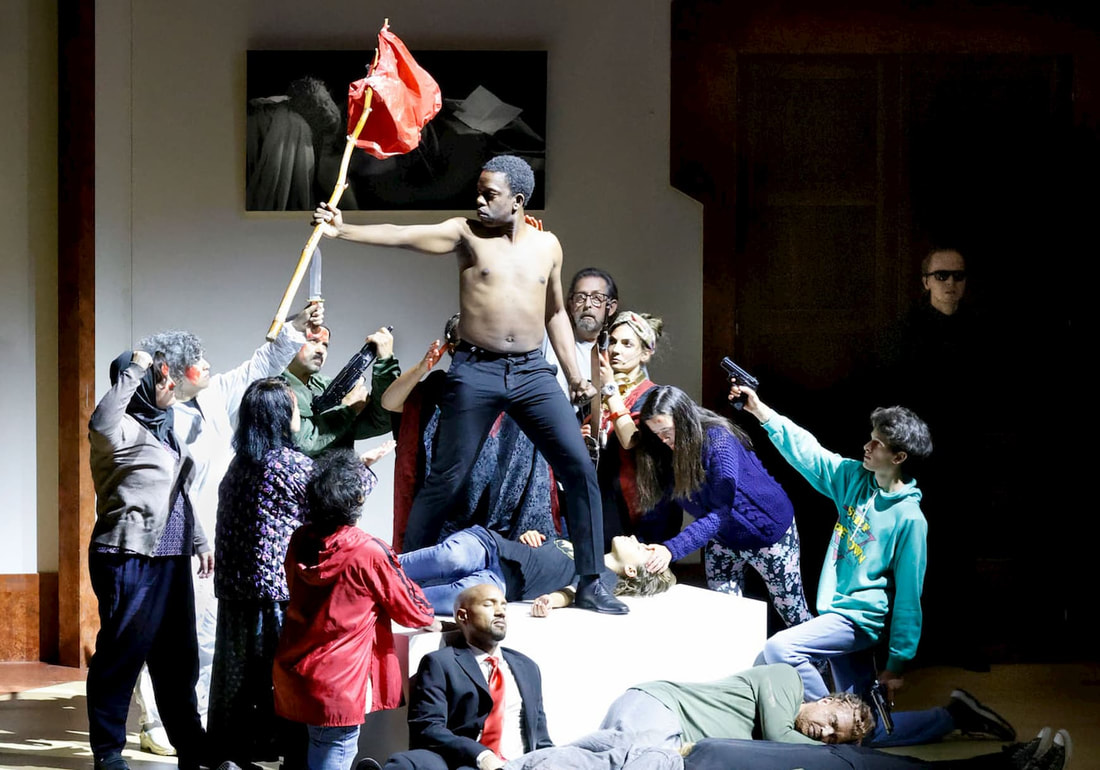
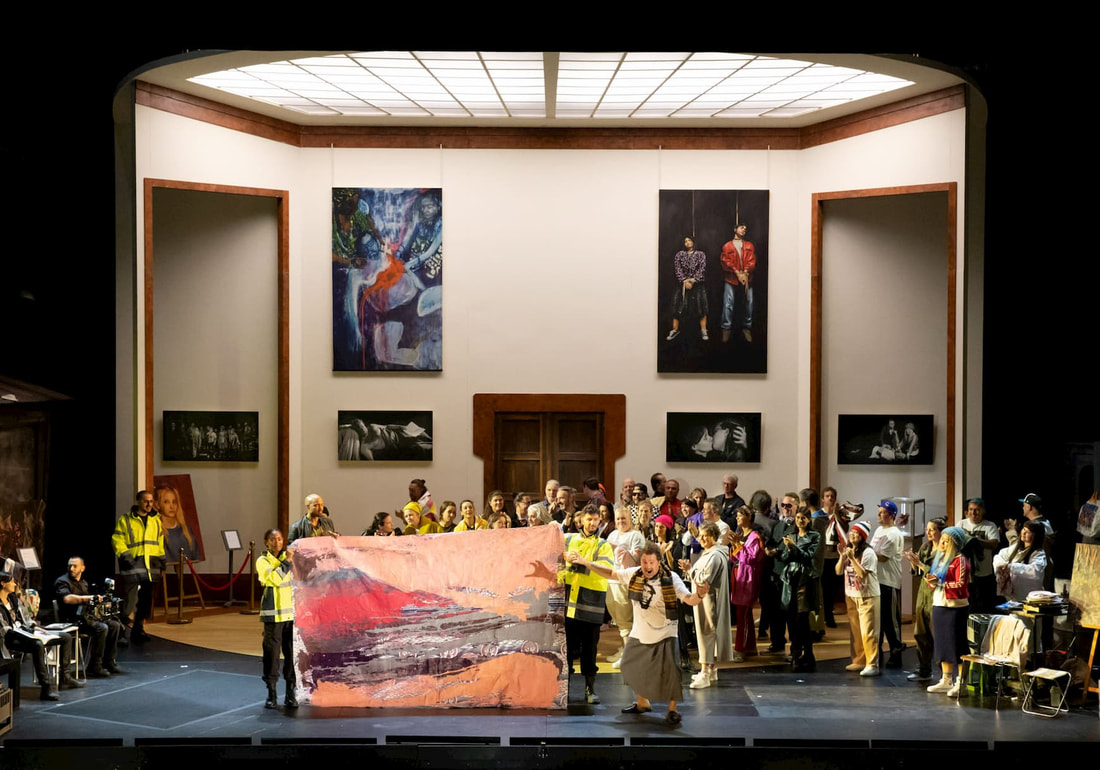
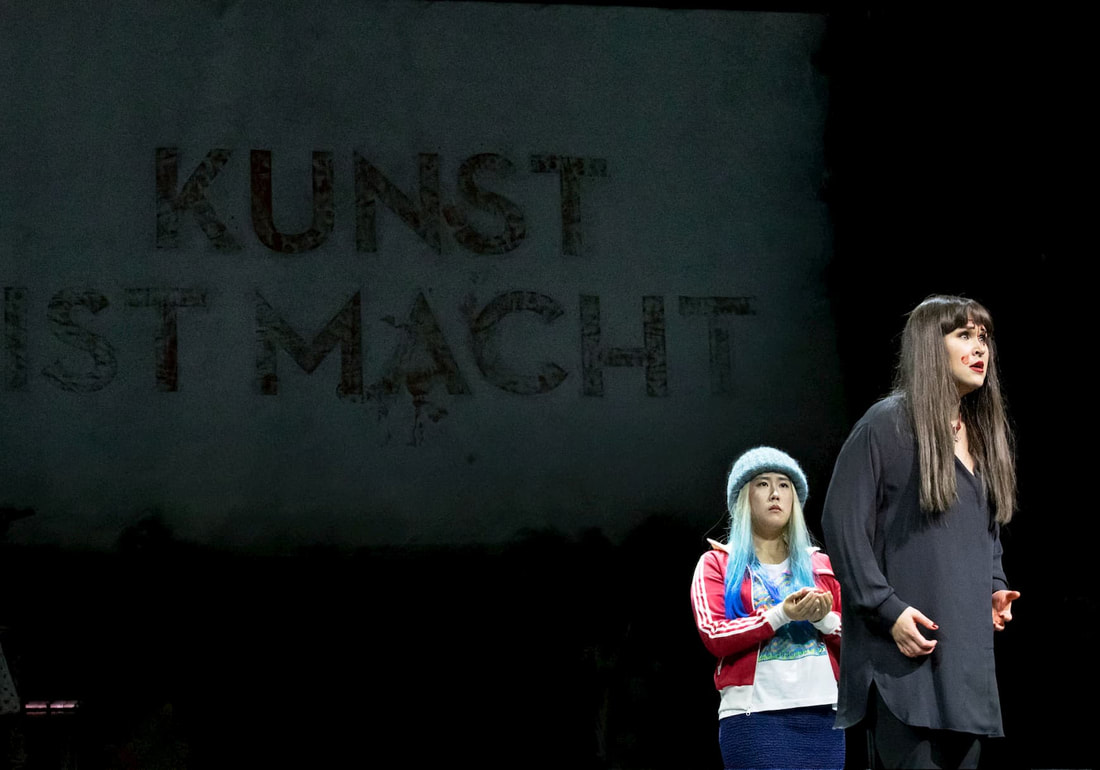
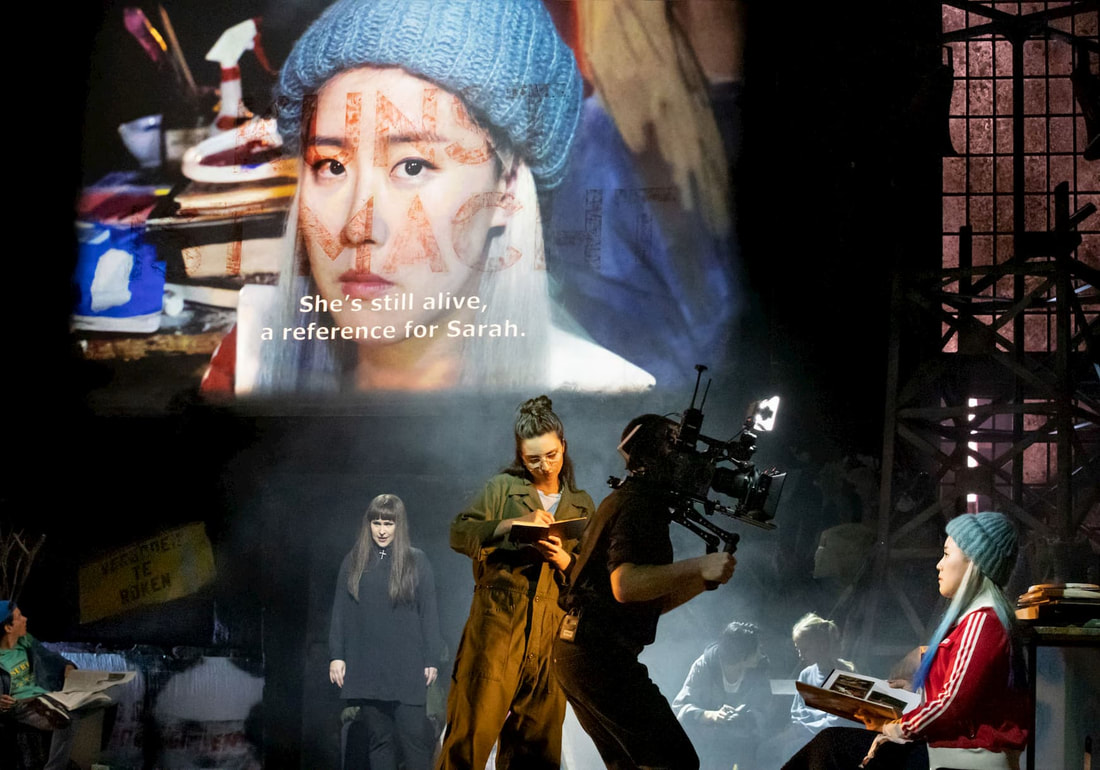
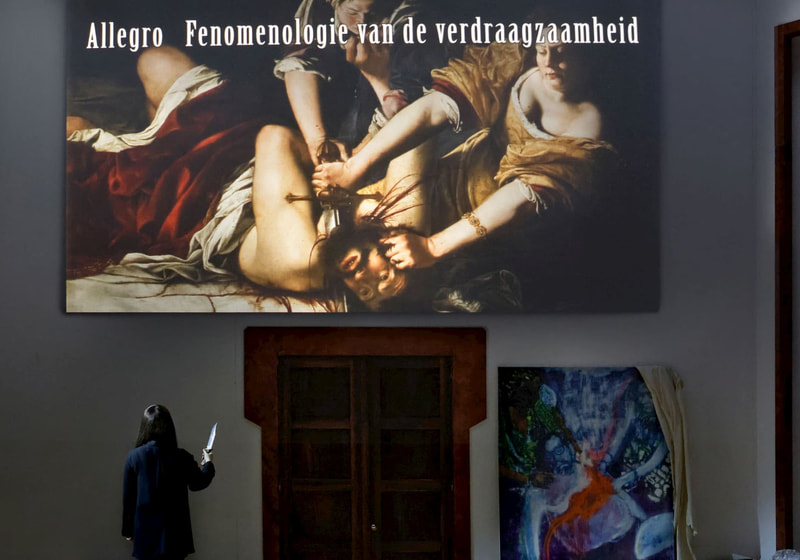
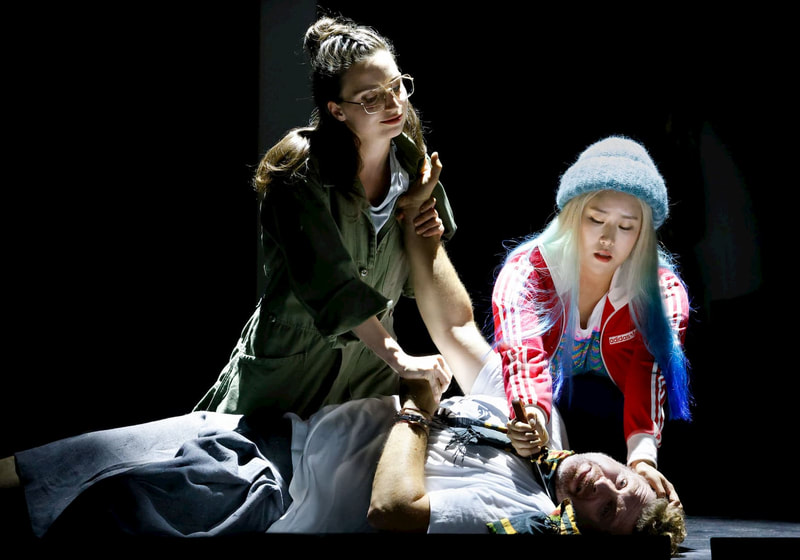
 RSS Feed
RSS Feed